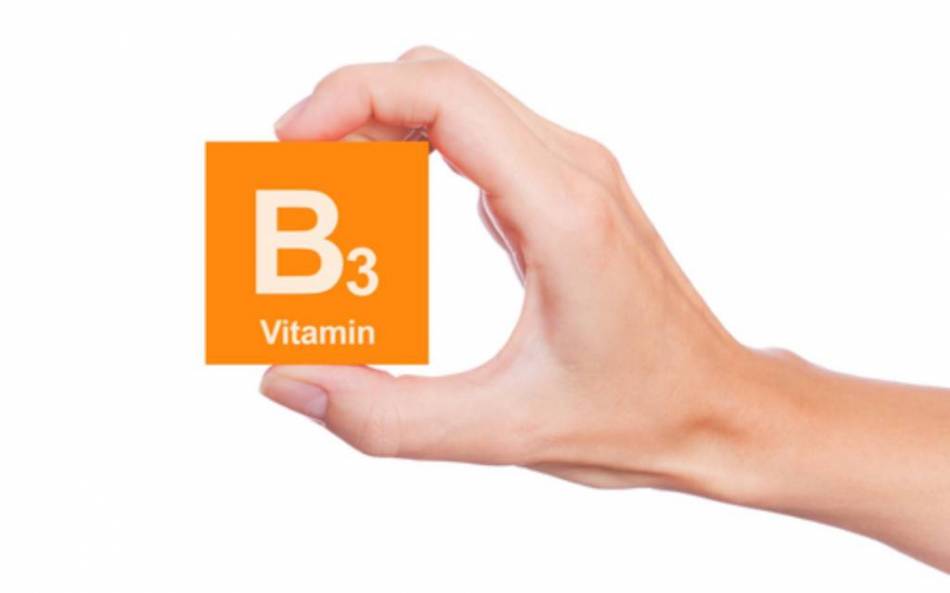
What you need to know about Vitamin B3 (niacin)

If you are constantly dealing with fatigue, this article is important for you. Vitamin B3 is made and used by the body to turn the food you eat into energy and it plays a vital role in the proper functioning of the nervous and digestive systems, while also helping with overall appearance of the skin.
What is Vitamin B3 or niacin?
Vitamin B3, also commonly known as Niacin, Nicotic Acid, Niacinamide or Nicotinamide, is a very important nutrient needed by the body in order to function correctly. It is the one responsible to turn the nutrients in the food we eat into energy, for it to be used by the body while performing its basic functions.
It is an essential nutrient that the body cannot produce on its own; therefore it should be consumed through a balanced diet and nutritional supplements. With this said, most people keep their optimal levels of Niacin from their food and, thanks to it being water-soluble, the body can easily excrete it in case of an excess.
Some of the common symptoms of Niacin deficiency are memory loss, feeling confused, fatigue, depression, headaches, and diarrhea or skin problems. But as mentioned before, most people get to consume the needed amounts of Vitamin B3 with a varied diet; making Niacin deficiency a rare condition in well developed countries with varied food sources.
Some of those sources include chicken breast, light tuna, beef, smoked salmon, peanuts and lentils. In general, a diet that includes fish, poultry, meet, nuts and legumes will have no problem keeping up with the amounts of Niacin needed by the body (Recommended Dietary Allowance / RDA):
Infants
-
0–6 months: 2 mg/day*
-
7–12 months: 4 mg/day*
* Adequate Intake (AI): Intake at this level is assumed to ensure nutritional adequacy; established when evidence is insufficient to develop an RDA.
Children
-
1–3 years: 6 mg/day
-
4–8 years: 8 mg/day
-
9–13 years: 12 mg/day
Adolescents and adults
-
Men 14 years and older: 16 mg/day
-
Women 14 years and older: 14 mg/day
-
Pregnant women: 18 mg/day
-
Breastfeeding women: 17 mg/day
When it comes to supplementation, most basic Multivitamin formulas contain the recommended amount, while it can also be consumed directly in the form of Vitamin B capsules.

How does Vitamin B3 work?
The importance of Vitamin B3 is the enzymes that are involved in cellular metabolism, for which Niacin is a major component. These enzymes, NAD and NADP, help convert food into energy, by breaking down the nutrients and helping them be absorbed by the body through wider blood vessels. This effect on blood vessels also supports to reduce the cholesterol in the body.
Niacin also acts as an antioxidant, a compound that inhibits the oxidation that causes damage to the cells in the body, further supporting the reparation of the body’s DNA.
Finally, the term Niacin Detox refers to the use of Niacin to break down fat cells and release the toxins stored in them, for them to be eliminated from the body through the skin and intestines.
7 health benefits of Vitamin B3
Supplementing with Vitamin B3 can bring positive effects on health; here we explain some of them.
1. Boosts brain function: As one of the most important organs in the body, the brain needs niacin in order to get the energy it needs to perform and function properly. Many brain deseases and psychiatric symptoms have been linked to Niacin deficiency and, as consequence, it is often used as treatment to fight brain damage. Memory loss is also associated with Niacin deficiency.

2. Improve skin function: Sun exposure is one of the most common causes of free radicals oxidating and damagin the skin, to which Niacin is used as treatment; either as lotion or creams, or taken orally with nutritional supplements. Niacin is also believed to prevent different types of skin cancer.
3. Treats pellagra: Pellagra is caused by having too little Niacin in the diet or if the body fails to absorb these nutrients from the food. Thus, Niacin supplementation is often recommended for people suffering from this desease. The main symptoms of pellagra are dermatitis, dementia and diarrhea, as this desease highly affects body parts with higher cell turnover such as the skin or the gastrointestinal tract.
4. Lowers LDL cholesterol and increase HDL cholesterol: LDL cholesterol refers to low-density lipoproteins, which is considered as the bad cholesterol as it leads up to building up the cholesterol in the arteries, resuilting in several heart and overall health conditions. In opposite, HDL cholesterol refers to high-density lipoproteins and it is considered the good cholesterol as it helps to bring the cholesterol in the body back to the liver for it to be removed from the body.
5. Lowers triglycerides: Connected to its effect on cholesterol, Niacin is also believed to support lowering triglycerides as it stops the action of enzymes involved in their synthesis. As a result, therapeutic doses of Niacin can lower triglycerides by 20%-50%.
6. May help prevent heart disease: Lowering LDL cholesterol, increasing HDL cholesterol and lowering triglycerides aren’t the only ways in which Niacin helps the heart. In addition, thanks to its antioxidant effect, it can also help reduce the oxidative stress and inflammation that leads to serious heart deseases and hardening of arteries, although more research is needed to further confirm these effects.
7. May help treat type 1 diabetes: When the body attacks and destroys the cells responsible for creating insulin in the pancreas, it will cause what is known as type 1 diabetes, for which there is research about the potential effect of Niacin in prevention and lowering the risk of suffering from this autoimmune disease. On the other hand, when it comes to type 2 diabetes, Niacin helps to contrarest the associated high cholesterol, although it has potential to increase blood sugar levels so constant monitoring is recommended.